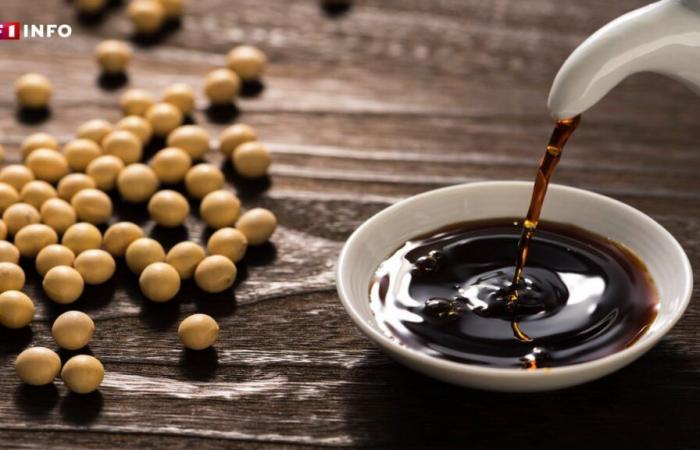Soy is suspected of being an endocrine disruptor, due to its high phytoestrogen content.
Health organizations advise pregnant women to limit their soy intake to one food per day.
To avoid taking risks during pregnancy, it is strongly recommended to find an alternative to these foods.
Follow the full coverage
Vegan: from trend to lifestyle
Unpasteurized milk, raw meat, fish and eggs, alcohol, cigarettes… It is common knowledge that these foods should be avoided during pregnancy, due to the risk of bacterial or parasitic infection in both the child and the mother. On the other hand, did you know that it is also not recommended to consume soy, whatever its form? We explain everything to you.
-
Read also
Large format: the soy boom
Endocrine disruptors, this scourge
Nowadays, soy is very present in our diet. Even more and more. Soy yogurts, soy milk, soy steak… So many foods that contain this plant from the legume family. And rightly so: soy has many benefits for our body, both for our nutritional intake and for our organism. However, if on a daily basis, there is no limitation on its consumption of soy, this is not the case for pregnant women.
Indeed, soy is suspected of being an endocrine disruptor, due to its high phytoestrogen content. According to numerous studies carried out on animals, phytoestrogens can have adverse effects on their young, such as a future fertility disorder, or poor development of the genitals. To date, no real study has been carried out on humans. However, prevention is better than cure. Thus, the French Food Safety Agency (AFSSA) and the National Institute for Prevention and Health Education (Inpes) advise limiting soy consumption to one food per day.
What can I replace soy with?
Many people today have switched to vegetable milk to replace cow’s milk. And among them, soy milk. The same goes for dessert creams or yogurts. Also, vegetarians or vegans easily turn to this plant, very rich in vitamin B9 and folic acid. However, there are alternatives to avoid taking risks during pregnancy. Namely: legumes (lentils, beans, peas), cereals such as quinoa, bulgur, oats, wheat, spelt, seeds and nuts.
But what about soy sauce? If you usually season your dishes with soy sauce, whether sweet or salty, don’t panic, your dishes will be just as good without it! For example, you can replace your classic sauce with a mixture of caramel and balsamic vinegar, or with Worcestershire sauce (an English sauce made with anchovies).







